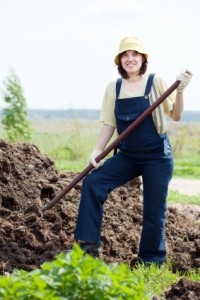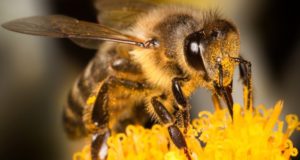I admit it—when I first started gardening, I was a little overly ambitious. My approach to growing vegetables was simple. In my mind, any old patch of soil in my backyard would do. All I needed was my green thumb and a few seeds. This approach was met with a rude awakening later that spring. To my dismay, my vegetables refused to grow despite the summer heat. My tomato vines looked wilted and droopy, incapable of producing anything edible. My strawberries looked as though they should star in Alien Vs. Predator rather than be used for human consumption. Alas, I was at a loss. My hopes of becoming an award-winning gardener had been dismantled, and I was ready to give up.
That’s when I started my research and began to realize that gardening, like most other endeavors in life, requires knowledge and patience. One of the most helpful tips I found in improving the state of my lackluster garden was the use of manure. There are many types of fertilizer available, and it’s easy to find oneself at the local feed store stewing over the wall of fertilizers, wrought with indecision. With so many kinds—organic, inorganic, liquid, powder—it’s enough to make your head spin! This moment, staring into the abyss of endless fertilizer, is where my gardening mantra developed: Keep it simple.
 The easiest way to guarantee garden growth is to stick to the basics. Manure has been the key element in fertilization for centuries. It’s been distilled, added to, and converted into all the products that litter the shelves of our local gardening stores. In my experience, the best way to fertilize a garden is with the most organic (and arguably the least desirable) substance: manure.
The easiest way to guarantee garden growth is to stick to the basics. Manure has been the key element in fertilization for centuries. It’s been distilled, added to, and converted into all the products that litter the shelves of our local gardening stores. In my experience, the best way to fertilize a garden is with the most organic (and arguably the least desirable) substance: manure.
When you begin preparing your soil for its new crop next summer, keep in mind that the best time to fertilize a patch of land is late summer or early autumn. This will allow the nutrients to decompose throughout the winter. It will also give the soil time to absorb some of these nutrients manure has to offer. Manure comes in many different forms, each offering different nutritional benefits to your garden. When it’s time to fertilize the garden, choose your manure carefully and follow the guidelines for its application. If manure isn’t handled properly, it can end up causing more harm than good. For those of us who weren’t born with a green thumb, don’t fret—with the right information, it’s easy to fake.
Cow Manure
Cow manure is often chosen for vegetable gardens. When there is a highly concentrated amount of nitrates (which many commercial fertilizers boast to have), the crop will sometimes suffer. Now, don’t get confused— your plants definitely want these nitrates. The problem is that if your nitrogen-rich fertilizer is applied too early in the season, the heat will make the manure so hot that it will fry your plants. This is why it’s best to apply in the early fall, allowing the nitrates to embed within the soil without killing any of the crop. Cow manure is low in nitrogen, so applying larger amounts at a time won’t necessarily kill off any sprouting crops. It does, however, contain bacteria that are not so pleasant. This is yet another reason it’s best to wait until fall before introducing it to the garden. Mixing your manure into the soil in the fall will ensure safe distance from its bacterial cultures throughout winter. By the time you return in the spring, the decomposed manure will barely be evident to you, but your plants will notice a huge difference.
New Natural Fertilizer Doubles Garden Production!
The manure will slowly decompose over the remainder of the winter, releasing its healthy nutrients such as potassium, calcium, and phosphorous. While the manure is decomposing, it will simultaneously be improving the structure of your soil, which is very important for crop maintenance. The soil will become richer and full of life by the time spring rolls around, keeping those mutant strawberries at bay.
Horse Manure
Arguably, horse manure is very similar to cow manure, and often the two are used together. They both contain similar amounts of the same nutrients, as well as other organic compounds and moisture. This means horse manure will be just as effective as cow manure in improving the structure of your soil and donating its benefits to your plant life. When using horse manure, it is very important to allow the manure to compost before you spread it through your garden. If horses are being fed weeds, they are probably passing the seeds, which are bad news for your spring gardening plans— unless, of course you’re unconventionally fond of weeding. If you’re not sure whether or not the horse was well fed, that is yet another reason to allow the manure to compost before you mix it into the soil.
Poultry Manure
Poultry manure differs from horse and cow manure, mainly because of those valuable little nitrates we encountered earlier. Poultry manure has a much higher level of nitrogen. This makes it very important to allow this fertilizer a significant amount of time to decompose into the soil so you don’t burn away those promising little sprouts. With high moisture content and much higher levels of nutrients than cow and horse manure, poultry manure can easily become your best friend in the garden. As long as you allow your poultry manure time to decompose before mixing it into your soil, you can’t go wrong with this animal’s excrement.
So, next time you’re held up in the gardening section of your local home improvement store, think to yourself keep it simple. Instead of fretting over which form of fertilizer to buy, take a drive to a local barn or feed store instead. If you’re truly ambitious, there are probably plenty of farmers in the area who would be happy to have you take stinky livestock waste off their hands. A farmer’s trash is a gardener’s treasure. While commercial fertilizers may have a lot to offer to your garden, manure is the simple, organic go-to for both your vegetable plants and your soil. The best advice for gardeners is to spoil your garden with nutrients. Combine these three forms of manure this fall as your garden begins to wean down and prepare for a healthy harvest next spring and summer. Your veggies will be grateful that you’ve given them the opportunity to chow down on some good old-fashioned manure. By mid-to-late summer your garden will be bursting with gratitude, your soil structure will have vastly improved, and your bragging rights will be well validated.
 Off The Grid News Better Ideas For Off The Grid Living
Off The Grid News Better Ideas For Off The Grid Living




